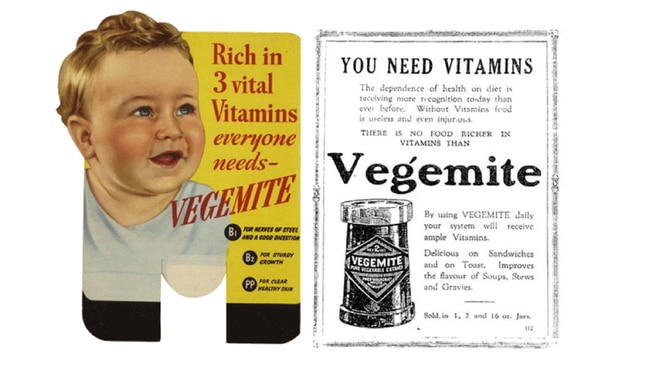The B vitamins that boost your mood and fend off anxiety
People who eat vegemite are less likely to become stressed or depressed than those who don't.

People who eat vegemite are less likely to become stressed or depressed than those who don't.
Love it or hate it, Vegemite is having a moment. Dr David Field, a researcher in the school of psychology and clinical language sciences at the University of Reading, says that the sticky yeast extract could prove an antidote to anxiety - and that more of us should consider consuming it.
“If I were a betting man, I would say a teaspoon of Marmite a day might reduce feelings of stress for some people,” Field says. “And so many of us are feeling more stressed about everything from exam results to Covid and finances to climate control that I think it would be worth a try.”
Field says Vegemite’s mind-boosting prowess comes from its B vitamins. This group of nutrients is essential in keeping our bodies energised and our immune systems primed, but also seem to have a calming effect on mood. The idea of the divisive foodstuff having a use beyond a slice of toast first featured on Field’s radar five years ago, when he attended a 2017 lecture at the University of York by scientists who claimed to have discovered a potential link between consumption of Marmite and activity in the brain. They found that people who consumed a teaspoon of Marmite every day for a month showed about a 30% reduction in their brain’s response to stressful visual stimuli, measured by recording electrical activity using electroencephalography (EEG), compared to participants who ate the equivalent amount of peanut butter.
Their findings, published in the Journal of Psychopharmacology, provided the impetus for Field to begin his own investigation. “What was surprising to me at that time was that it seemed possible to change brain responses with a daily spoonful of Marmite,” he says.
“The suggestion was that it is because it contains vitamin B12 in fairly high quantities, as well as vitamin B6 and other B vitamins, all of which are involved in the functioning of the brain and in controlling the balance between excitatory neurons that carry information around and inhibitory ones, which prevent runaway activity.” Stress and mood disorders are thought to result partly from disruption of this delicate balance. “There are other studies that have looked at similar yeast extract products to Marmite, such as Vegemite,” he says.
“And they have shown that people who eat the stuff are less likely to be anxious and depressed than those who don’t.”
For a study published this month (and not, incidentally, sponsored by Marmite), Field wanted to find out which, if any, of the particular B vitamins contained in the yeast extract might be driving a reduction in anxiety. He looked specifically at vitamin B6, known to increase the body’s production of GABA (gamma-aminobutyric acid), a chemical that blocks impulses between nerve cells in the brain, and B12, a deficiency of which has been associated with depression, dementia and mental impairment, particularly in the elderly.

“We moved on from using Marmite, as it is not a very scientific or standardised dose,” he says. “With lots of different B vitamins in yeast extract, the metabolic pathways are interconnected, which makes it difficult to see what is actually working.” Instead he asked a group of young people, most of whom had self-reported anxiety or depression, to take supplements of either B6 or B12 vitamins for a month.
According to government recommendations, men and women need 1.4mg and 1.2mg of B6 daily respectively. The daily recommended dose of B12 is 1.5mg for adults, with vegans and some vegetarians advised to take a supplement because the nutrient primarily occurs in meat, fish and dairy. Field’s 480 participants were given either a placebo or a tablet containing either 1,000 micrograms of B12 or 100mg of B6 - well above the current average intake, but matching levels widely available in commercial supplement form. After four weeks, results showed that while taking B12 had little effect compared to the placebo, B6 provided a significant boost to their mood.
“There were raised levels of GABA in those who had taken the B6 supplements, which supported our hypothesis that it was responsible for anxiety reduction,” Field says. “And when we conducted visual tests there were subtle changes consistent with adaptations in brain activity after taking the supplement.”
His newly published paper could not be more timely.
Last week another group of researchers at University College London cast doubt on the widespread use of antidepressants, claiming their use is “not grounded in science”. For decades it has been thought that depression is linked to low levels of serotonin, a neurotransmitter in the brain; most prescribed antidepressants, including Prozac, are selective serotonin reuptake inhibitors (SSRIs), thought to work by increasing serotonin levels. But the UCL report, published in the journal Molecular Psychiatry and based on a review of dozens of clinical papers, suggests there’s “no convincing evidence” for this, and that serotonin levels between healthy and depressed people are no different. Read all about this study here.
Field says it is too early to suggest that diet can be a solution for mild to moderate depression and that, even if we do not fully understand why they work, SSRI antidepressants remain an effective treatment for many. From now on, however, he will be looking more closely at the potential role of food and nutrients, particularly B vitamins, as part of the treatment for anxiety and depression.
“We know that when your body is producing stress hormones because you are stressed and anxious, or when you smoke or drink too much, these B vitamins are getting burnt up at a faster rate,” Field says. “An anxious student preparing for exams or someone who is stressed about work is using up their B vitamins, and the risk of low levels is exacerbated by poor diet habits, all of which could make stress worse.”
It’s tantalising to think that a vitamin supplement might one day be prescribed to treat anxiety, but Field says “a more plausible way forward” is the development of a multinutrient pill to be used in combination with talking therapies, such as cognitive behavioural therapy, to boost mood. “We need to start looking at what would provide the best cumulative effect,” he says. Zinc, magnesium and vitamin B2, or riboflavin, “could act to reduce neuron excitation” and could work well together with B6; so he hopes to run individual studies on each, and then on a combined pill, to see what works.
“There’s also something called decanoic acid [DA], which is normally produced by the body during ketosis and which blocks glutamine, the main excitation neuroreceptor in the brain, and works in a similar way to many drugs,” he says. Its effects are powerful and a low-carb diet is sometimes prescribed for certain types of epilepsy to raise levels of DA. “Not many people would want to adopt a keto diet long term,” Field says.
“But what we don’t yet know is whether a DA supplement retains the beneficial properties during digestion or whether eating a lot of coconut oil, which contains DA, would be helpful in conjunction with vitamins and minerals.”
A starting point for anyone with anxiety, he says, should be to make sure you are getting enough B vitamins. “Many foods, including Marmite, of course, plus tuna, chickpeas, leafy greens and bananas, oranges and papaya contain vitamin B6,” Field says. “Or you can take a B-complex vitamin, which is what I do.” He cautions that you can get too much of a good thing.
Too high an intake of B6 over months or years can result in peripheral neuropathy, which, according to the NHS, can cause a loss of feeling in the arms and legs. It will usually improve once supplementation is stopped, but Field says it is wise to consult a registered dietician to make sure you are not overdoing it.
“Ultimately my hope is that we will eventually identify all nutrients that work together to produce quite a substantial calming effect on the brain in a pill that might be clinically effective,” Field says. “And the beauty of that is it would be almost side-effect free.”


